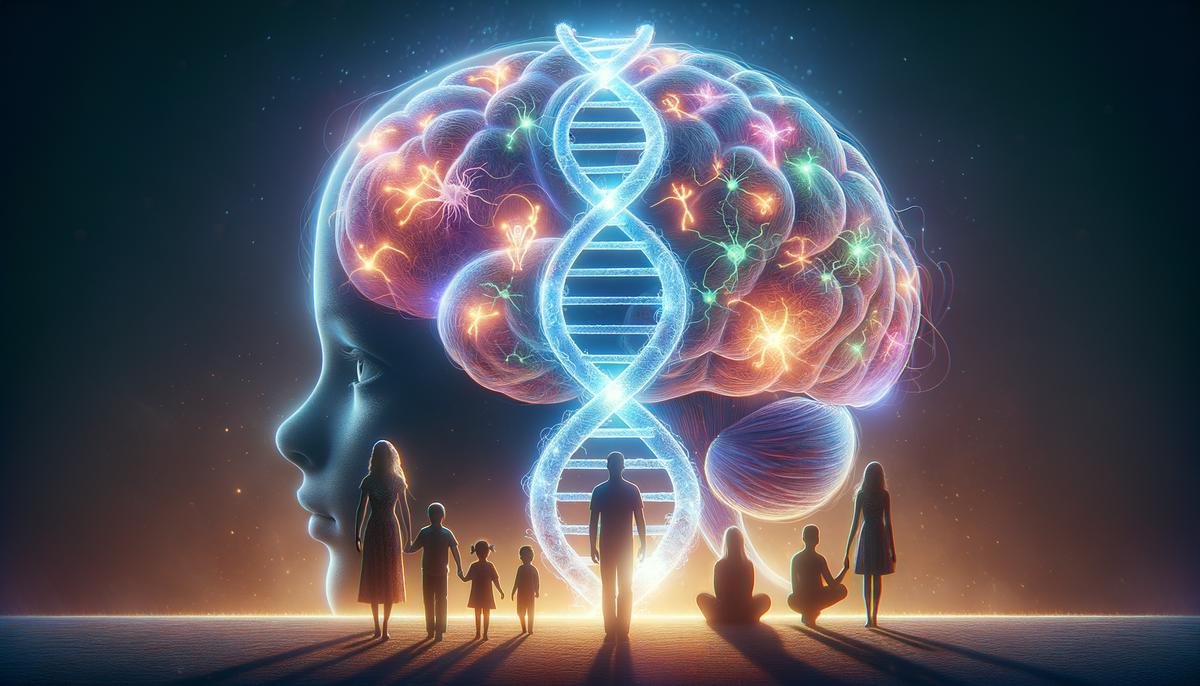
In our dynamic world, understanding Autism can feel like a herculean task due to its complex nature and the unique challenges it imparts on those affected. Breaking it down, understanding its symptoms, the ways it manifests in daily life, and its cognitive and social impact is the first step towards a comprehensive understanding. This is even more crucial for those directly living or working with an autistic individual. Equal importance lies in realizing the role of Autism Support Groups. Their ability to provide emotional aid, share resources, advocate for rights, and foster a sense of community elevates their value. Understanding these groups and assessing which one suits a particular need forms the bedrock of this discourse.
Understanding Autism
Learning about Autism can feel overwhelming, particularly if it is a recent diagnosis for a loved one.
Autism, or Autism Spectrum Disorder (ASD), as it is formally known, is a complex, multifaceted developmental disorder. Speaking from both the perspective of research and experience, it’s crucial to understand that it can affect individuals differently. This means the experience of Autism varies wildly from person to person, like a fingerprint.
Where does it affect individuals, you might wonder? Most commonly, Autism impacts social skills, communication, relationships, and self-regulation. But the degree to which this happens ranges from very mild to severe, hence the term “spectrum.” Some individuals flourish acadically, while struggling socially and emotionally, or vice versa. They may have heightened sensory experiences, meaning sights, sounds, or even touches may overwhelm them more than an individual not on the spectrum.
Remember, it doesn’t define them, it’s merely one aspect of their unique identity. To enhance understanding and de-stigmatize Autism, it’s crucial to educate ourselves and reach out to our community. Diverse minds make up a vibrant, compassionate world, and by embracing and understanding Autism, we are partaking in the making of such a world. Nurture the children, respect the adults, and promote the inclusion of all. As a family, we learn, grow, and bond together.

The Importance of Autism Support Groups
Autism support groups play an indispensable role in helping families navigate the multifaceted journey entailed by this developmental disorder. The value of these support structures goes far beyond sharing knowledge and coping strategies. They provide a sense of community and foster a feeling of understanding and acceptance that can be hard to come by in everyday life. Being able to connect with other families who truly comprehend the unique challenges and joys Autism brings can be an incredible source of comfort. It allows families to share experiences, vent frustrations, and celebrate victories in a supportive environment. The shared experience can provide invaluable reassurance, reminding families they are not alone but are part of a wider community with common trials and triumphs.
Moreover, these groups can also serve as platforms for advocacy. Families can learn how to more effectively advocate for their loved ones in school and healthcare settings, and collaborate towards driving wider systemic changes in their communities. Importantly, new research findings are often shared and explained within these groups, helping families stay up-to-date with the latest information on Autism. Parents and caregivers can gain insights into how best to support their child’s educational and developmental needs based on these latest findings.
In sum, autism support groups are more than just a useful resource—they are a lifeline for many families. They acknowledge and uphold the worth and dignity of individuals with Autism by providing support personally and systemically, and give families the tools they need to navigate this unique journey successfully. Such groups affirm the importance of embracing our shared humanity and the beauty in our differences. Together, they are a clarion call for understanding, acceptance, and inclusion.
Types of Autism Support Groups
With the understanding that autism is a wide-ranging spectrum that impacts each individual uniquely, it becomes paramount for families to connect with and derive support from like-minded groups and organizations. Thankfully, there are several types of autism support groups that fulfill these requirements.
One common type of support group is the parent-focused group. Here, parents of children with autism gather, either virtually or in person, to share their experiences, insights, and methods. These forums often prove immensely solace-rendering as it forms a platform for parents to openly discuss the challenges they face, the victories they’ve savored, and the coping strategies they’ve uncovered. These forums may not necessarily involve professionals but rather rely on the collective wisdom of many who walk similar paths.
Another type is the professionally led support group. Usually hosted by a psychologist, social worker, or a therapist, these offer more structured support, providing an environment where families can gain key insights into the latest therapeutic techniques and treatment modalities. Accountability, an innate sense of community, and expert guidance become crucial components of these groups—making them an invaluable resource for both parents and children.
Online support groups also deserve a special mention. With the digital age upon us, online forums and social media platforms have emerged as a potent tool of assistance. They offer a constant, around-the-clock availability and being geography-agnostic, they provide assistance at a global scale, drawing on a wide array of experiences to deliver the needed guidance.
In a nutshell, autism support groups offer a beacon of hope and a reservoir of strength. From parent-centric groups to professionally-led circles, to the ubiquitous online communities, they differ in their modus operandi but unite under the umbrella of mutual understanding, acceptance, and above all, unwavering support. Remember, it is through these shared connections and sustained conversations that inclusive societies flourish—celebrating not just the commonalities, but also the diversities in the human journey.

Guidelines to Choosing the Right Support Group
With an understanding of the complexities that Autism presents and the richness it can add to an individual’s life, it’s clear that selecting the right Autism Support Group is an essential stepping stone for those seeking valuable resources and emotional support. The group you choose must be a safe haven that fosters understanding, acceptance, celebration of differences, and unwavering support.
Parents or caregivers should consider groups that are focused on families with children diagnosed with autism, as these can be a genuine wellspring of practical advice and emotional support. Professionals often lead these groups offering structured guidance and expertise, especially in navigating the educational and developmental needs of individuals with autism. Moreover, these groups strive to uphold the worth and dignity of individuals with autism, advocating opportunities for them to fulfill their potential.
In addition, the advent of technology has significantly expanded the scope of autism support, making it more accessible. Online support groups and social media platforms are invaluable sources of assistance. These platforms cut through geographic boundaries, allowing parents and caregivers to connect with others facing similar challenges worldwide. Furthermore, it enables shared connections and regular conversation – elements crucial in destigmatizing autism and paving the path towards building inclusive societies.
In conclusion, choosing the right Autism Support Group is paramount. Consider your family’s needs, the group’s background, the comfort it provides and how well it resonates with your expectations. It’s about creating a supportive network around your loved ones, underscoring that while Autism is part of their identity, it does not define them. All while celebrating the shared humanity and unique individualities found within these communities.

Navigating the world of Autism and its support systems is no simple feat, but with the right knowledge, it becomes manageable. It’s not just about understanding Autism or realizing the importance of support groups, but it’s also vital to find the right support group that aligns with a family’s unique needs, ethos, and perspectives on managing Autism. Remember that every journey is unique, every challenge has its solution, and every support group has its strengths. The aim is to empower families, care workers, and individuals impacted by Autism to find the support systems that truly aid them, practically and emotionally, in dealing with Autism. The journey might be complex, but armed with the right knowledge, the destination is not unreachable.




